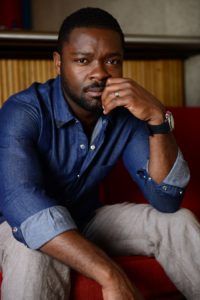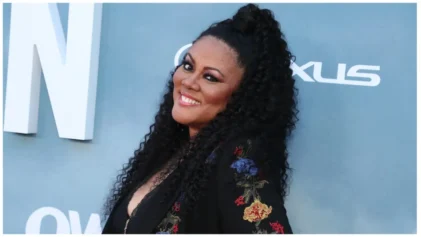Given the diversity challenges in the entertainment industry and the general difficulty of breaking through as an actor, it’s not surprising that there isn’t a bevy of African actors and actresses in mainstream Hollywood, yet there are a handful of them who have broken through and found an inspiring measure of success — actors like David Oyelowo and Dayo Okeniyi, who are both of Nigerian blood.
Oyelowo has earned tremendous acclaim for his portrayal of Dr. Martin Luther King Jr. in the Oscar-nominated Selma. He is a British-born Nigerian who grew up in South London until the age of 6 when his parents decided to return to Nigeria. They moved back to London when Oyelowo was 13 years old.
His native Nigerian counterpart Okeniyi made his acting debut in The Hunger Games in 2012, eventually leading to his role as a tech genius in the recently released Terminator Genisys. Okeniyi was born in Lagos, Nigeria, the same place Oyelowo’s family is from. In 2003, Okeniyi and his family left their native land for Indiana when he was 15 years old.
Despite their similarities in name, heritage and recent success, there is an interesting disparity in the two actors’ perceptions on diversity in Hollywood.
In an interview with BET published in late June, Okeniyi addressed the racist hate mail he received for his role as Thresh in The Hunger Games, a character some fans hadn’t envisioned as Black in the books. “People are going to be racist. People are going to feel what they want to feel,” the actor said. He continued on the issue of diversity, defending Hollywood as an advocate for change. “As long as we’re not getting it from our own industry. Hollywood’s always bucked against the system. I love my industry. I love the Screen Actors Guild. I love the fact that they protect us and they try to create opportunities for us regardless of what it may look like on the outside of what audiences may think, they always want to be in a position to push the boundaries.”
Pushing boundaries is certainly a constant theme in Tinseltown but some would say that his view is a bit rosier — if not naïve — than the true picture of diversity in Hollywood. The industry has lagged behind when it comes to minority representation on film and TV and has even been resistant to change when it didn’t appear monetarily viable — a fact that Oyelowo recognizes as all too prevalent in Hollywood. “My ambition is to see stories that otherwise wouldn’t be told and characters that are often seen as peripheral in mainstream Hollywood take center stage. And that, for me, is primarily black people,” the Selma star told The LA Times.
In contrast to Okeniyi’s position that Hollywood has pushed the boundaries, Oyelowo’s view has seen Hollywood push in the opposite direction. “The success of Empire is indicative of a lie that has been told for years, that nobody would watch a black family on a mainstream network show. It’s the same preconceptions we battled with The Butler, when they told us the movie wouldn’t travel. That film ended up making nearly $200 million worldwide. These are lies upheld by people who want to perpetuate a certain mythology because it serves their own agenda, which is them wanting to see themselves in movies,” he asserted.
So what accounts for the difference in views on the same Hollywood?
A number of factors can come into play, but the most basic is that experience informs perception. Okeniyi’s first experience in Hollywood was being cast in a sizable role of a blockbuster film based on best-selling books upon having just moved to California. If first impressions are lasting impressions, how could his impression of the opportunities provided to Black actors be other than positive? Though certainly inspiring, his experience is uncharacteristic of the entertainment industry for most actors, regardless of color.
Okeniyi, though younger, is not blind to Hollywood’s color and gender issues. “I don’t think actors of color or Asian actors or women for that matter are represented exactly as they are in society,” he admits to BET. He even revealed that he has lost roles due to his skin color, but his approach to handling such experiences is a more passive one. “You just have to develop a thick skin,” he says. Okeniyi holds fast to the belief that the powers-that-be in Hollywood are making strides to change the racial marginalization. “I think that there is a conscious effort to try to do something about it in Hollywood. As long as my industry creates opportunities for me and doesn’t care about what people or Twitter says, that’s great. It makes me just love my industry even more.”
Those conscious efforts Okeniyi speaks of aren’t the actions of some singular industry entity correcting mistakes of the past, but of men and women like his contemporary Oyelowo, who sees that progress is happening in the area of racial and gender inclusion in filmmaking, but recognizes that it doesn’t happen on its own. “Historically what has happened is that you have a moment and then everyone feels like, ‘Oh, it’s changing,’ and then everyone relaxes,” Oyelowo explains. “And the one thing I refuse to do is relax and assume that we’re in the middle of a critical mass that is now going to self-perpetuate,” he continued in The LA Times interview.
In the same interview, Oyelowo demands more women filmmakers, more Black women directors, and holds himself to the promise of cultivating that change. “While I have a degree of notoriety and a window whereby people are interested in what I do, I’m going to try to do brave, meaningful work that tells the truth and shifts some of the tough ground that I feel I’ve had to endure and, at the very least, make it more supple for those coming behind me,” the Oscar nominee declared.
It’s not that Okeniyi’s perception is wrong and Oyelowo’s right. They are just different. However complacent the former may seem, there is something to be said for his wide-eyed optimism in the face of a frustrating and sometimes disheartening racial reality in entertainment — in itself a sort of quiet determination to persevere in Hollywood despite the industry’s shortcomings. His current rising success is a credit to the diversity progress in the business. But if Okeniyi’s is the prayer to accept the things he cannot change about Hollywood, Oyelowo’s is the converse: to change the things he cannot accept.




